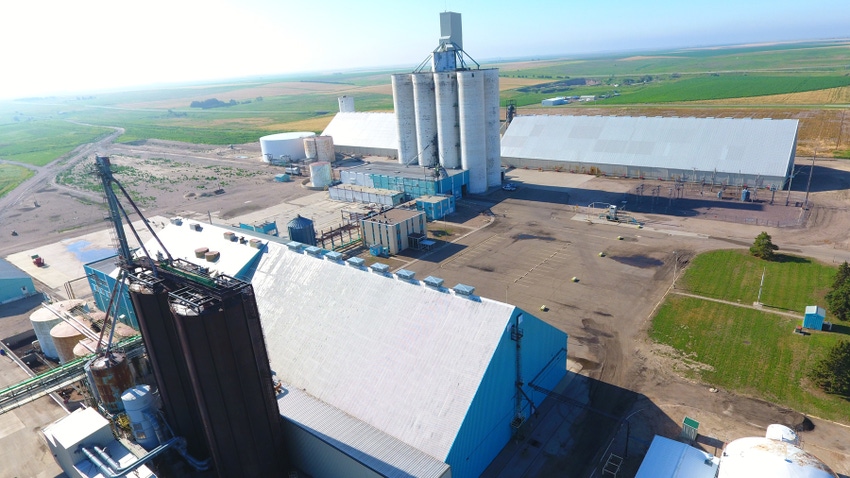
Last spring, Scoular announced it planned to recommission a former sunflower crush plant just outside of Goodland, Kan., retrofitting it to crush both soybeans and canola. And farmers across the Plains took notice.
In the past 15 years or so, winter canola had built momentum among farmers in Kansas and Oklahoma. But with the closing of many delivery points, the crop had become more difficult to market, and so farmers in those two states had reduced their planting to about 31,000 acres in 2022, according to USDA’s National Agricultural Statistics Service.
Now, though, with the growing demand for vegetable oil for use in the renewable diesel market, and Scoular reopening this Goodland plant, farmers may want to take another look at the crop.
Decarbonizing fuel streams
Sandra Hulm, Scoular vice president and general manager for the Goodland project, says the marketplace is decarbonizing fuel streams through both government regulation and voluntary measures. That is leading this market demand for vegetable oil to be used in creating renewable diesel.
According to Scoular, the renewable diesel markets are expected to use 6 billion gallons of vegetable oil by 2025. Meanwhile, the U.S. capacity in 2020 was only 2.6 billion gallons.
When the Goodland facility is on line in fall 2024, Hulm says, it will have a 30% increase in crush capacity, up to 1,000 metric tons per day.
“There is a high level of demand for renewable energy that continues to exceed supply,” she says. “And that is due to a number of things. Shifts in consumer preferences, changing corporate ESG goals, as well as regulation mandates and tax credits that are all tied to renewable fuel production.”
Soybeans and canola
“The beauty of Goodland is it’s a switch facility,” Hulm says, meaning it will now be able to take both canola and soybeans. This provides a new local market for western Kansas soybeans and goes a long way to regrowing the market for winter canola, Hulm adds.
“From a producer perspective, there’s a number of benefits to growing winter canola specifically,” she says, “from weed and disease control to less irrigation required. It also provides a winter ground cover. And, again, like soybeans, it’s a high-value oilseed crop specifically compared to winter wheat in that region.”
Scoular launched Canola MVP, a program that’s working with both Kansas State University and Oklahoma State University agronomy experts to provide farmers with best management practices and guidance on seed varieties.
“We are working diligently with the producers of Kansas and Oklahoma to grow the winter canola footprint through the Great Plains to feed the full capacity of the plant long term,” Hulm says. To that point, Scoular is setting up local delivery points at Pratt, Wellington and Coolidge, Kan., as well as the Goodland facility.
“The Goodland crush plant will be a completely different facility when we are up and running,” Hulm says. “We are investing a substantial amount of capital to increase capacity and quality, as well as investing into that producer experience.”
Sustainability is key
Scoular, like many companies, sees sustainability as part of its long-term growth. Processing oilseeds for renewable diesel is part of that, but also bringing jobs to the Goodland, Kan., community and working with farmers to improve their farms.
“Oilseed processing is part of our growth strategy,” Hulm says. “This step upstream represents the continued evolution of Scoular’s strategy, to participate in the growing intersection of agriculture and energy. It also highlights our commitment and stewardship to the Goodland community. This business is going to bring 40 new jobs to the area, and you couple this with the amount of traffic this production will generation within the Goodland area, it’s substantial.”
And while some farmers may be concerned about traceability requirements to sell Scoular canola seed or soybeans, Hulm says that’s not a requirement today.
“As it sits today, there is no specific traceability requirements for producers selling Scoular canola seed or soybeans,” Hulm says. “If this requirement changes, Scoular will work with our producers to support activities related to traceability. Scoular will also continue monitor any changes in regulation and/or requirements related to traceability of canola seed and soybeans.”
Kate Pitschka, Scoular’s corporate sustainability manager, says that the company has a long-term sustainability strategy across five pillars that aligns with the company’s core mission and values, while providing sustainable solutions across the global agricultural supply chain.
“Our sustainability team is devoted to ensuring we hold ourselves accountable for our impact on the environment, workforce and communities through our sustainability commitments and safeguard resources for future generations,” she said.
Read more about the company’s five pillars here.
Read more about:
CanolaAbout the Author(s)
You May Also Like






